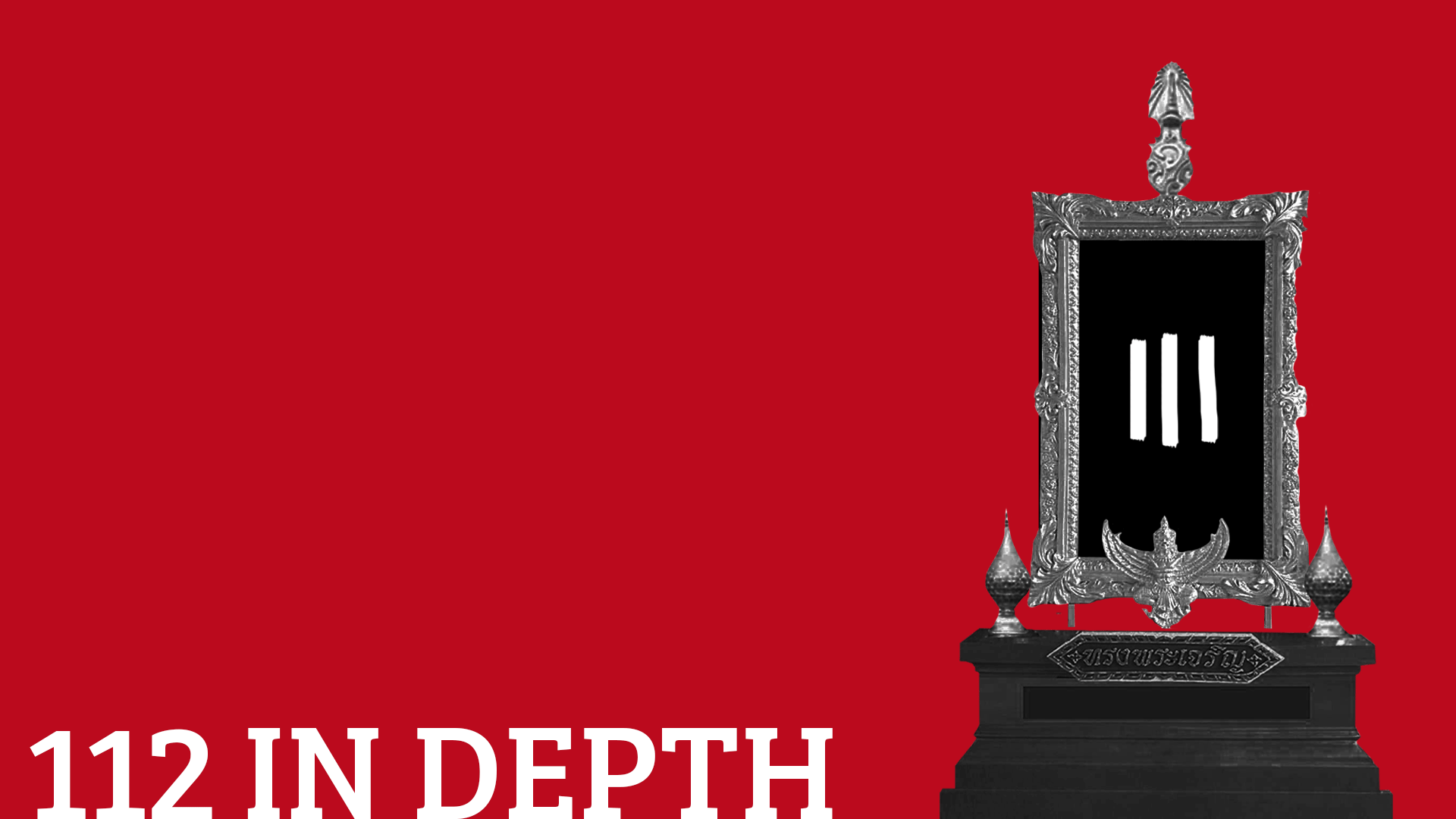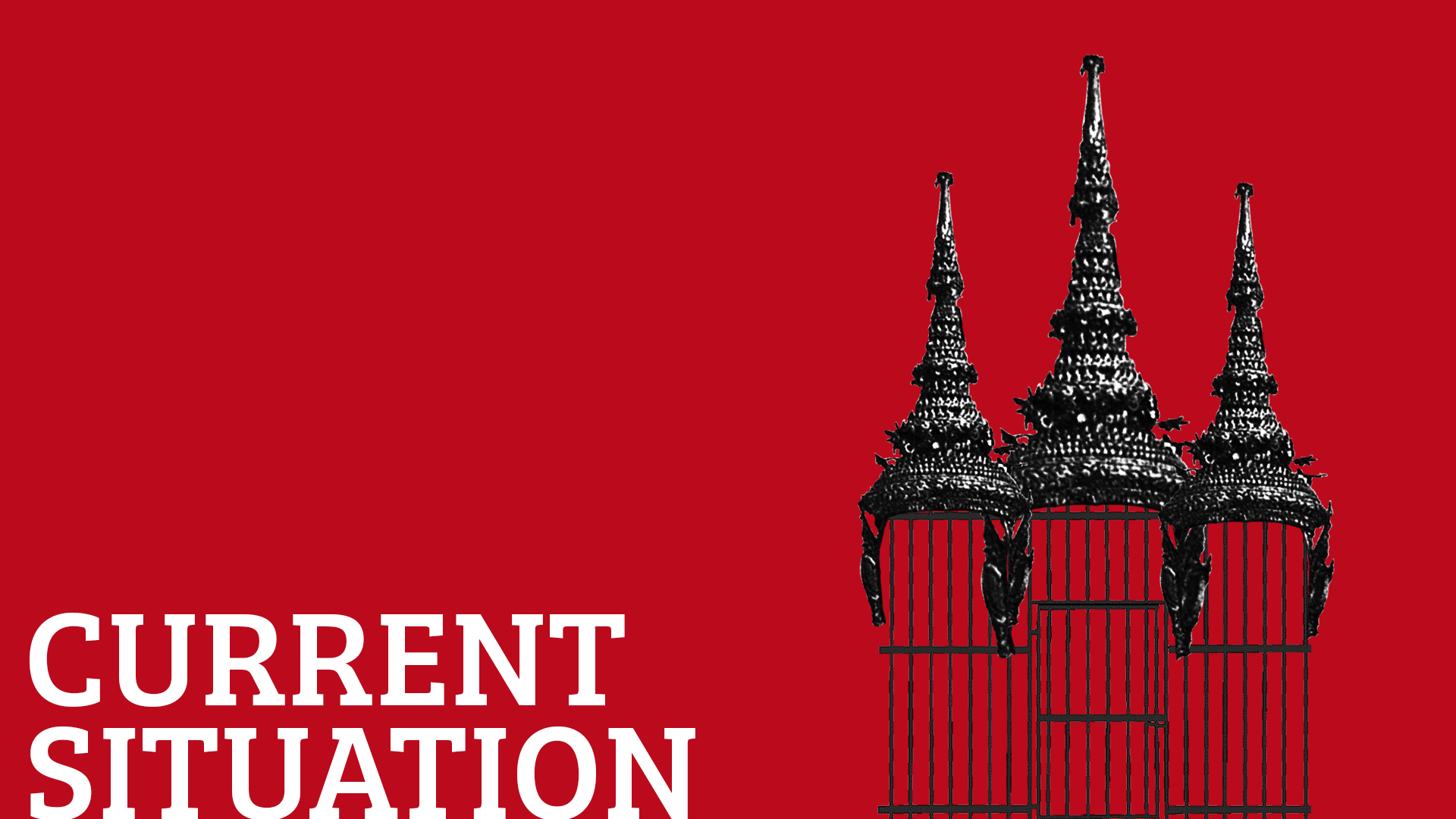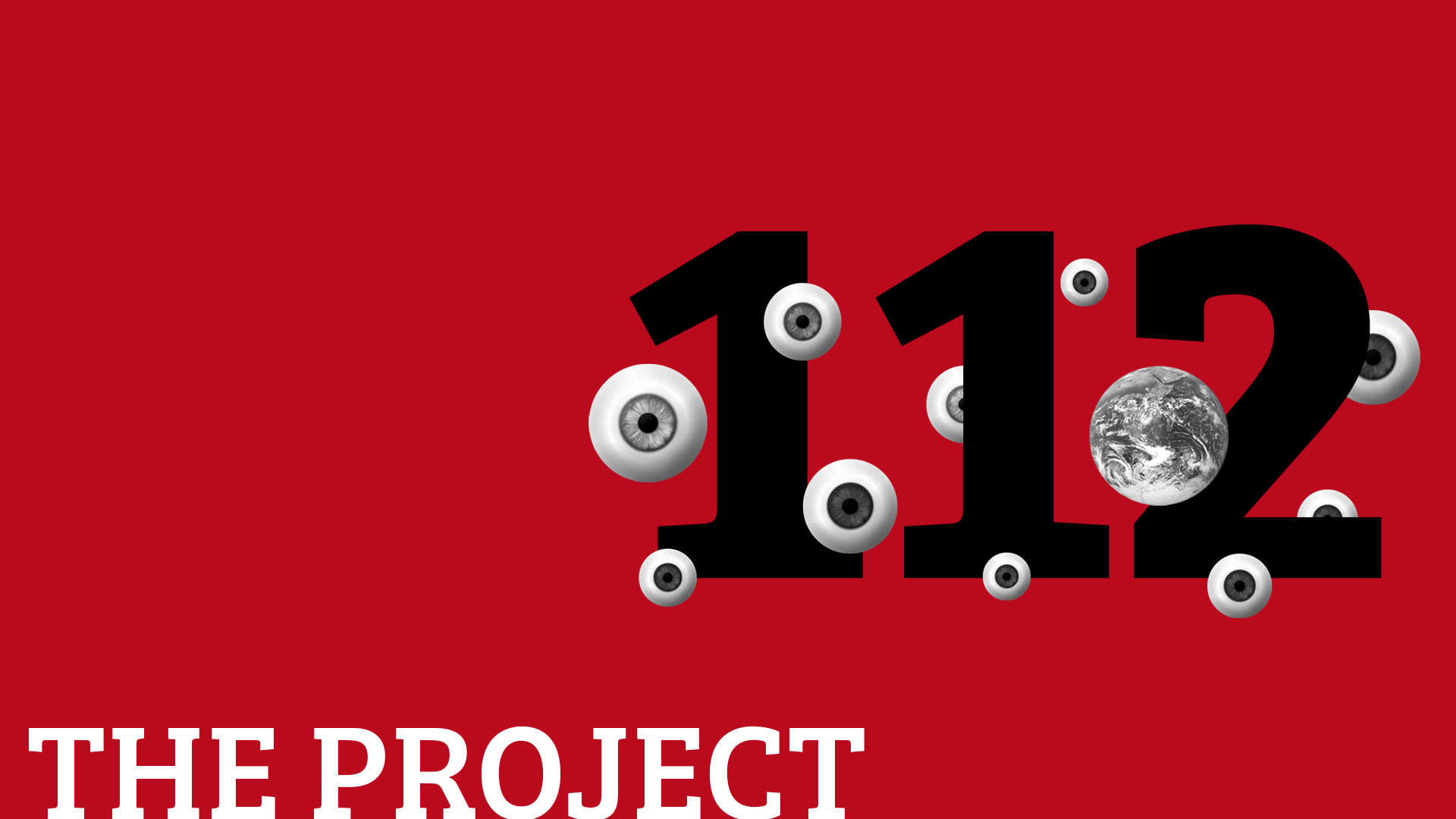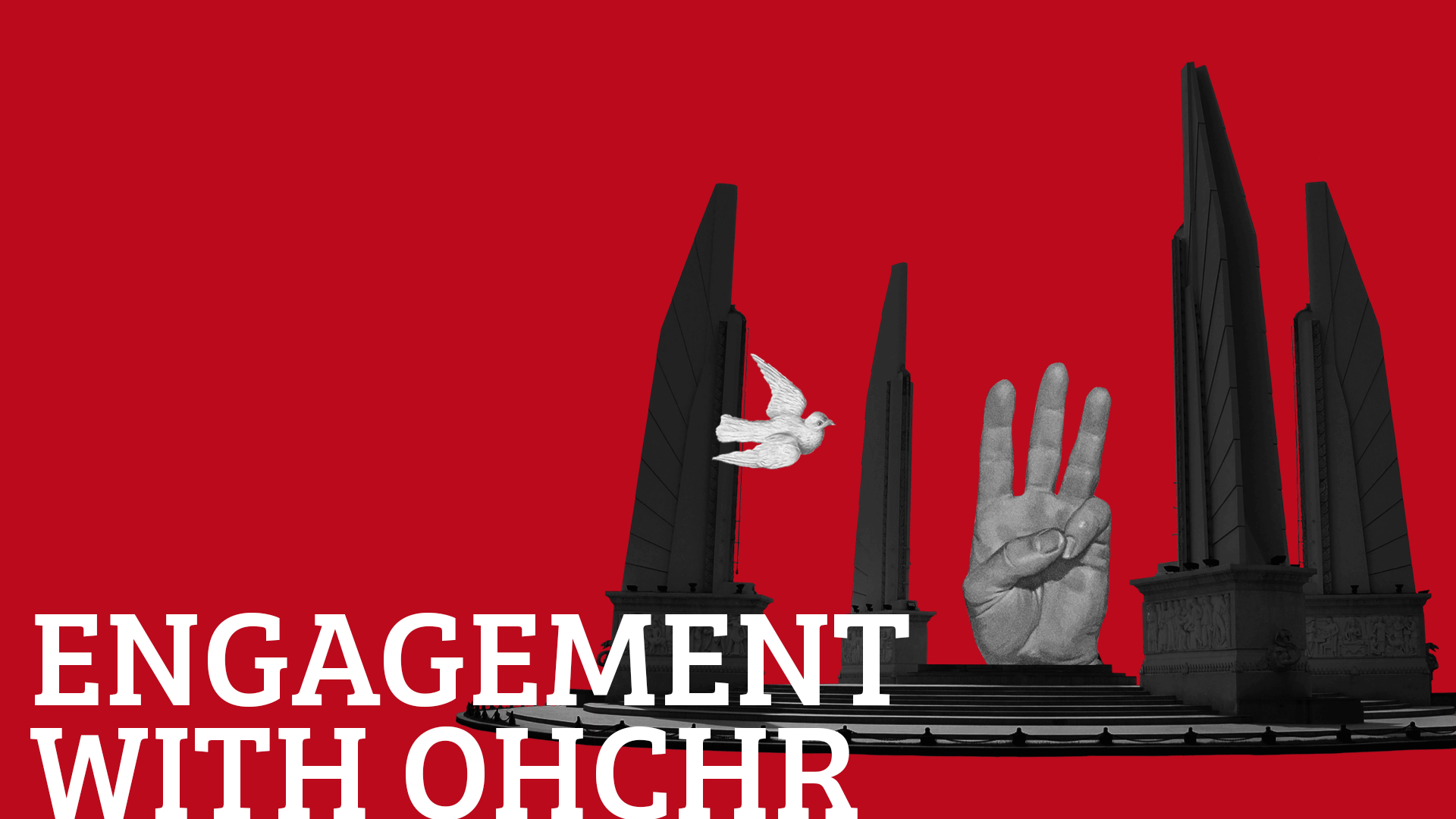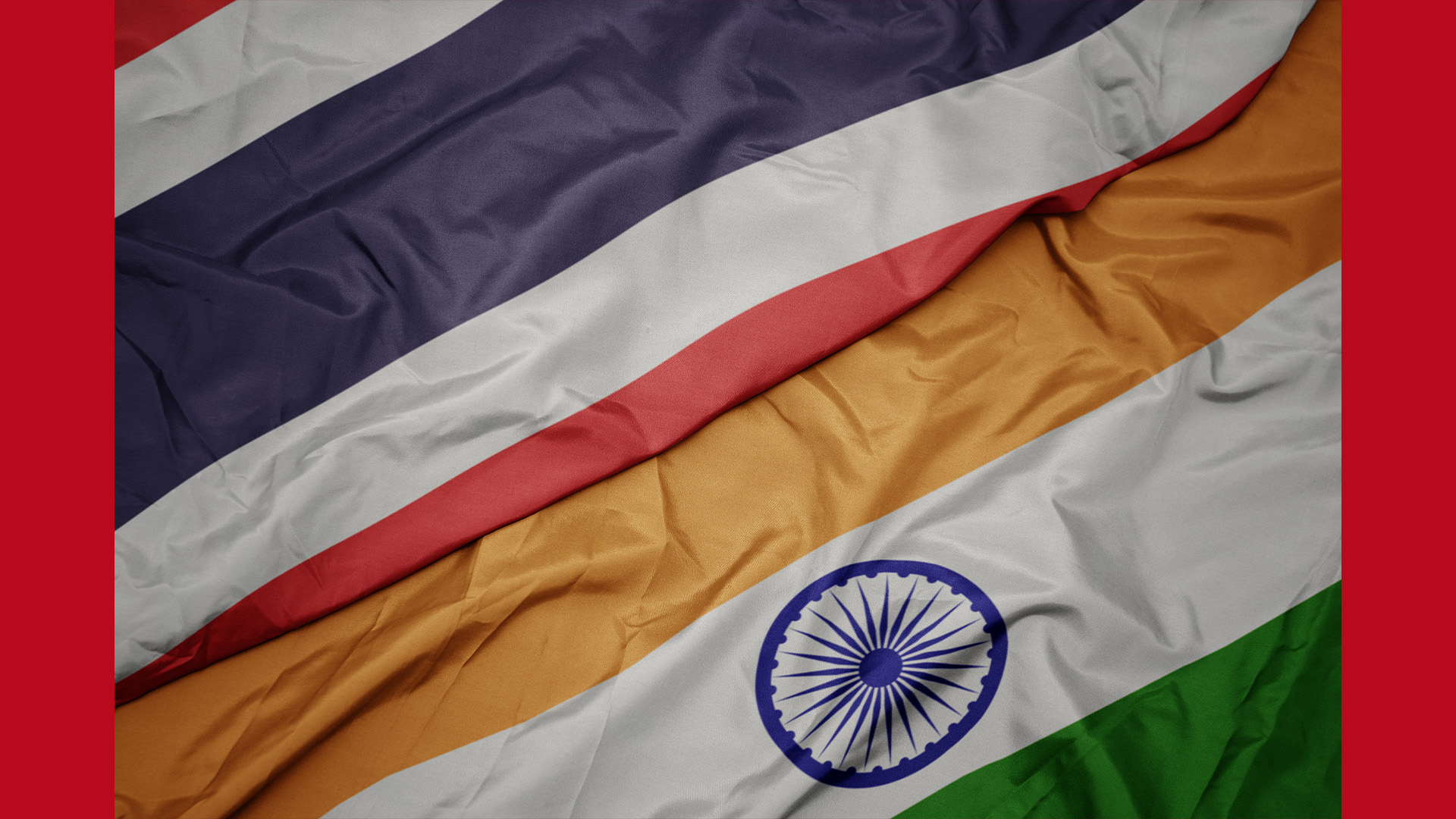
Twin Models of Divine Authoritarianism in Thailand and India
Twin models of divine authoritarianism shows how democracy dies through sacralization of power that makes resistance appear futile and fundamentally wrong.
May 27, 2025
An examination on how Thailand and India have pioneered sophisticated forms of twenty-first-century authoritarianism by transforming political power into sacred authority, creating legal and cultural systems that criminalize dissent by framing opposition as spiritual blasphemy rather than political disagreement. Building on French scholar Eugenie Merieau’s groundbreaking research on Thailand’s Section 112, this comparative study asks: Do Thailand’s lese-majeste prosecutions and India’s Hindutva blasphemy enforcement represent twin models of ‘divine authoritarianism’ that have perfected the criminalization of dissent through spiritual legitimacy? The analysis demonstrates how both nations have solved modern authoritarianism’s central challenge by making their authority appear natural, eternal, and necessary rather than artificial, imposed, and contingent, revealing how democratic institutions can be systematically captured not through military coups but through the subtler process of sacralizing political power that transforms criticism from political disagreement into moral corruption.
The French Scholar's Forbidden Discovery
Eugenie Merieau has done what no Thai scholar dared: she stripped naked Thailand's lese-majeste law and exposed its authoritarian anatomy. Her forensic dissection of Section 112 reveals not legal protection but political weaponization dressed in sacred robes. While Thai academics whisper in corners, terrified of their own research subject, this French scholar has blown apart the myth of royal law as cultural preservation. But Merieau's breakthrough illuminates something far more sinister than Thailand's peculiar monarchical paranoia. Her analysis unwittingly exposes the blueprint for what might be called "divine authoritarianism" – a sophisticated system that transforms political dissent into spiritual crime. And nowhere is this blueprint more perfectly replicated than in India's Hindutva machinery, where blasphemy laws and cultural nationalism create an almost identical apparatus for criminalizing opposition.
When God Becomes Government
The philosophical architecture of both systems rests on a brilliant perversion of Carl Schmitt's political theology. Schmitt argued that the sovereign decides on the exception, but Thailand and India have gone further: their sovereigns decide on the sacred itself. The Thai monarchy doesn't just rule; it embodies cosmic order through centuries of Brahmanical legitimation fused with Buddhist cosmology, creating the "devaraja" tradition where questioning the king means challenging the universe's fundamental structure. India's Hindutva ideology operates through parallel machinery, positioning Hindu nationalism not as political preference but as civilizational dharma, where criticism becomes cosmic treason. Both have solved modernity's legitimacy crisis by making their authority appear divinely ordained rather than humanly constructed, metaphysically necessary rather than politically contingent.
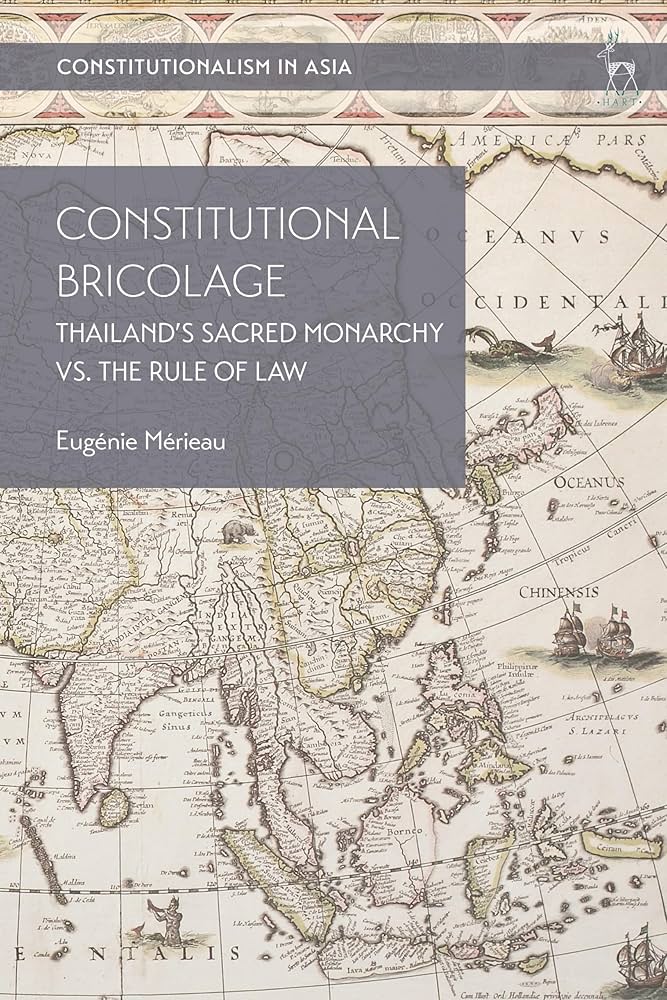
Twenty Failures, One Pattern
This is where Thailand's constitutional carnage becomes crucial evidence. The kingdom has torn through twenty constitutions since 1932 not because of political instability but because of structural impossibility. Each constitution attempted the juridical equivalent of squaring a circle: reconciling unlimited sacred monarchy with limited democratic government. Thongchai Winichakul's concept of the national "geo-body" explains how Siamese survival through colonialism required grafting modern state apparatus onto ancient cosmological kingship. The result was constitutional schizophrenia, where every legal framework eventually shattered against the fundamental contradiction between popular sovereignty and divine authority. Thailand's constitutions weren't destroyed by coups alone but by the philosophical impossibility of containing transcendent power within temporal law.
Consider the perverse genius of this arrangement. Every constitutional crisis becomes evidence not of systemic failure but of divine necessity. When courts bow to royal prerogative, when parliaments defer to palace wishes, when constitutions crumble before monarchical will, the system presents this not as authoritarianism but as cosmic correction. The constitution fails because it dared oppose eternal order. Democracy stumbles because it challenged divine arrangement. Opposition collapses because it resisted sacred truth.
Parallel Paths to Sacred Suppression
India's trajectory reached identical destinations through different routes. Where Thailand preserved divine monarchy directly, India's founders created secular constitutional architecture that Hindutva has colonized from within like a constitutional parasite. The movement's genius lies not in rejecting democratic frameworks but in redefining their spiritual essence, transforming secular nationalism into Hindu rashtra through judicial capture, cultural policy, and legal interpretation. The result functionally mirrors Thailand's system: constitutional government increasingly subordinated to claims of sacred authority that transcend democratic accountability.
When Law Becomes Lawless
Both systems have perfected what Giorgio Agamben would recognize as permanent states of exception disguised as cultural protection. Thailand's lese-majeste prosecutions create legal black holes where normal constitutional protections vanish the moment royal dignity is invoked. The law's calculated vagueness – prohibiting royal insults without defining either insult or royal boundaries – transforms every citizen into a potential criminal whose guilt depends entirely on state interpretation of sacred offense. A Facebook like becomes sedition. A historical question becomes treason. A political criticism becomes cosmic blasphemy.
India's enforcement machinery operates through equally sophisticated legal architecture, weaponizing everything from colonial-era sedition statutes to freshly minted anti-conversion legislation, cow protection laws, and digital surveillance frameworks that criminalize virtually any expression deemed threatening to Hindu sensibilities. The beauty of both systems lies in their democratic appearance. Courts process cases. Laws get cited. Procedures get followed. Yet the outcome remains predetermined: sacred authority trumps democratic rights every single time.
 Justifying lese-majeste cases and Hindutva
Justifying lese-majeste cases and Hindutva
What makes both models particularly insidious is their psychological sophistication. They don't just punish dissent; they make dissent appear morally reprehensible. Thai authorities prosecute lese-majeste cases not as political suppression but as defending Thai-ness itself, protecting the cosmic order that supposedly depends on royal sanctity. Hindutva enforcement presents itself not as majoritarian authoritarianism but as protecting ancient civilization under siege, defending dharma against adharmic forces threatening cosmic justice itself. Both narratives perform the same psychological alchemy: transforming victims into villains and oppressors into protectors.
The result is what might be called "anticipatory conformity" – psychological climates where formal prosecution becomes almost unnecessary because self-censorship becomes reflexive. Thailand's lese-majeste law creates chilling effects so pervasive that citizens police their own thoughts to avoid potential royal offense. India's Hindutva ecosystem operates similarly, creating social environments where questioning Hindu nationalism becomes professionally suicidal, socially isolating, and potentially physically dangerous. Both achieve authoritarian goals through democratic means, using legal frameworks and social pressure rather than overt dictatorship.
The comparative analysis reveals how both systems have solved twenty-first-century authoritarianism's central challenge: maintaining democratic legitimacy while eliminating democratic substance. Traditional dictatorships faced constant legitimacy crises because their authority appeared artificial, imposed, contingent. Thailand and India have transcended this limitation by making their authority appear natural, eternal, necessary. When power claims divine sanction, resistance becomes not just illegal but spiritually wrong.
This represents a profound challenge to Enlightenment assumptions about secular governance and popular sovereignty. Both nations demonstrate that democratic institutions can be systematically captured not through military coups or constitutional suspension but through the subtler process of sacralizing political power. By claiming divine legitimacy, both systems make criticism appear not just politically dangerous but morally corrupt.
The international implications demand urgent attention. Thailand and India have created blueprints for sophisticated twenty-first-century authoritarianism that other nations are studying and adapting. They've shown how democratic institutions can be hollowed out while maintaining democratic appearances, how legal frameworks can be weaponized for authoritarian ends while preserving rule-of-law rhetoric, and how cultural nationalism can legitimize political suppression while claiming to protect authentic tradition.
Merieau's breakthrough provides analytical tools for understanding this broader phenomenon. Her work demonstrates that sacred authoritarianism represents not pre-modern politics but cutting-edge solutions to modernity's legitimacy problems. By comparing Thailand's royal sacralization with India's Hindu nationalism, we see how different cultural contexts produce functionally identical authoritarian outcomes. Both have perfected the art of making political oppression appear spiritually necessary, transforming dissent into blasphemy and opposition into sacrilege. Understanding these twin models of divine authoritarianism becomes crucial for recognizing how democracy dies not through dramatic collapse but through quiet sacralization of power that makes resistance appear not just futile but fundamentally wrong.
Prem Singh Gill
Prem Singh Gill is a Visiting Scholar in Universitas Muhammadiyah Yogyakarta, Indonesia, and in Thai Public Universities
